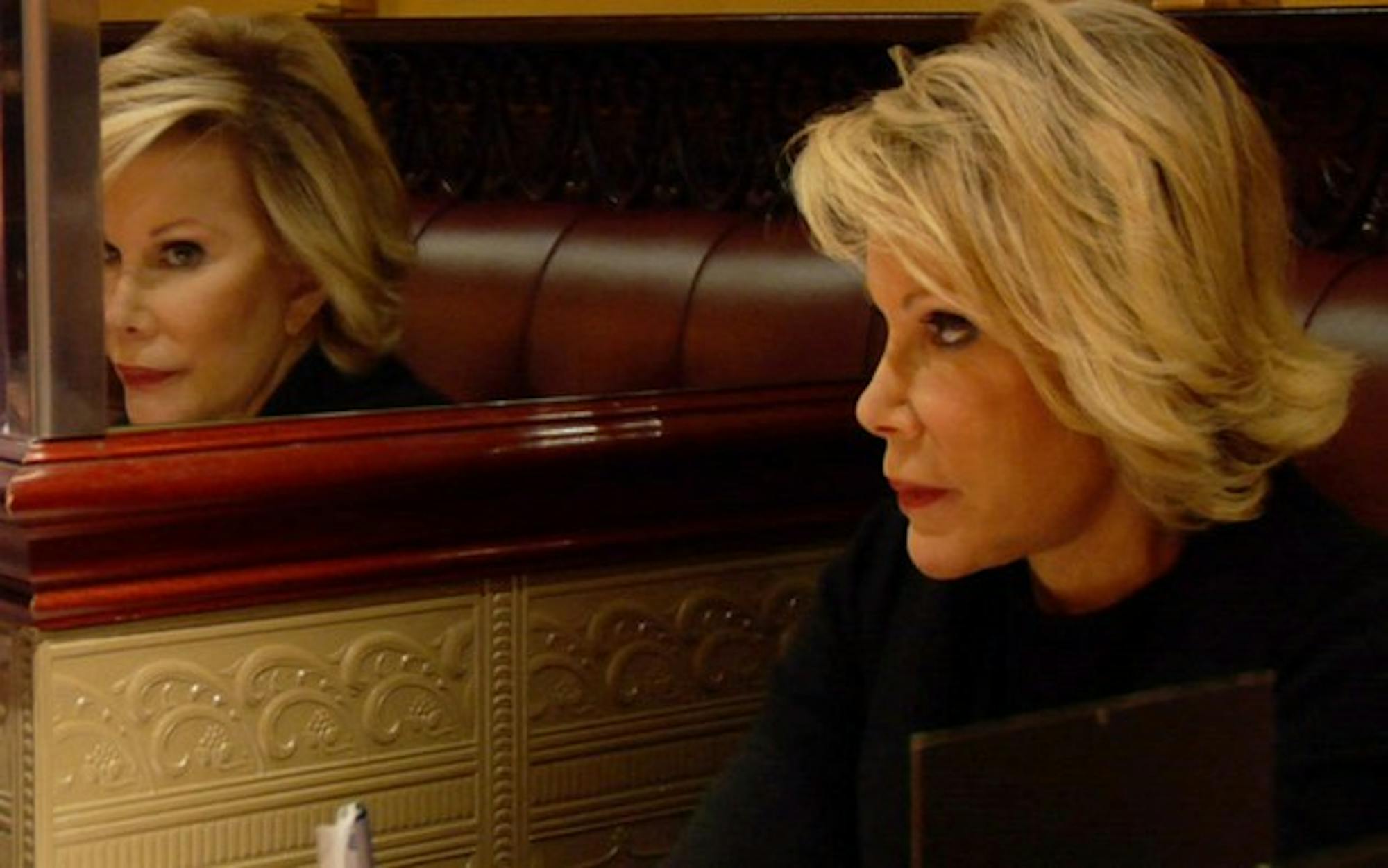The film grants audiences access into the private and public life of Joan Rivers the good, the bad and the ugly. At times crude, at times funny and at times shockingly unguarded, Rivers carries on with her busy schedule of shows while the cameras follow her every move. As she explains in brief interviews, she must continue with show business even at 75 or she would have nothing. At one point in the documentary, Rivers even begins to cry when she realizes she has no one to share memories with. And yet she fires her manager, with whom she's had the longest-lasting relationship, during the filming.
In an interview with The Dartmouth, Stern explained how she came up with the idea of filming the iconic comedian for over a year.
"It was one of those spontaneous things where I said, What about a movie about Joan Rivers?'" Stern said. "I called my mom, who is friendly with her, and two minutes later she called Joan and two minutes later Joan and I were talking. I went to her apartment within the next day or two and sat with her for about an hour. Within that hour, something clicked for me. I thought she was so angsty and vulnerable and real and she had such an interesting story to tell about her past."
Rivers got her start as a writer and guest comedian on NBC's "The Tonight Show Starring Johnny Carson." And although she refers to Carson as her mentor, their relationship fizzled when Rivers became a Carson competitor in 1986 with her own late night talk show, "The Late Show Starring Joan Rivers" on FOX. The show, however, was short-lived. Rivers was fired when she disputed FOX executives' decision to remover her husband, Edgar Rosenberg, as producer. He committed suicide three months later.
"I think people are appreciating the film because there's this side of a very public persona that's very surprising and touching in a way. [It's] universal, as the story really touches people by looking at age and an aging performer and what one sacrifices for their passion," Stern said. "I think everyone can connect to that sacrifice. There are these different universal themes, and that's what people bring to it and get out of it. On a more superficial level, it's an opportunity for the audience to get an insight into a person they think they know in the public, but there's an ah-ha' moment, because they had no idea what she can be like."
Stern followed Rivers to shows, book signings and throughout her private sphere to provide a glimpse into the reality of an aging performer, constantly worried about her fading importance. In one interview with the camera, Rivers points to a blank calendar page and claims, "I'll show you fear that's fear. If my book ever looked like this, it would mean nobody wants me, that everything I tried to do in life didn't work nobody cared, and I'd been totally forgotten."
The documentary focuses on these less glamorous scenes to expose a dimension of Rivers' life that the public does not otherwise see, such as the dismal backstage area in which Rivers waits before heading to the stage for a stand-up show. The gritty content made for an intense filming experience, Stern said.
"Directing this film was a little different from the other projects we've worked on, because there was a need for a very intimate shooting," she said. "I was doing the shooting most of the time, and since I have this relationship with the subject, it created a very intense sort of process."
Stern and Sundberg will lead a discussion after the screening Friday evening. As Dartmouth alumnae, they look forward to speaking with Dartmouth students about the filming process and their time at Dartmouth, Stern said.
"My Dartmouth experience absolutely influenced my career today," Stern said. "The film department was very small at the time and we were a handful of very educated people who were interested in filmmaking. We were very supportive of each other, we inspired each other, and there was a sense of family."




